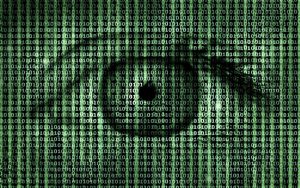“He” or “she” works most of the time for majority of the human population. Majority of the languages used by the human race also reflect that. But does that serve us well? What if the human race moved towards using the “they” pronoun for everyone, not just those who don’t identify with “he” or “she”. Would this make our societies more egalitarian?
When I was in high school many moons ago (pre-internet), one of the classes that I took was French. It wasn’t my strongest subject, but it did make me wonder why some objects, professions and tasks had a certain gender grammatically assigned to them. The French word “professeur” has a male gender which forms an underlying subtext that professors are male and not female. By using a different gender for nouns, does this communicate that women can’t do certain roles like be a professor? Canadian French has a form of the professor noun that is feminine which is slowly being adopted by European French. But before this adoption, would it be fair to say that European French culture was more restrictive in the roles women had (and continue to have in a patriarchy dominated world) in French society?
This is not restricted to just the French by any means. I’m just using the language and culture as an example. Many languages in the Romantic language family share this characteristic. Other cultures in our human experience don’t. Some First Nation languages have been reported to have 5 or more different ways to refer to a person’s gender beyond male and female. This begs the question of what words are used to refer to leader in First Nation languages. Was there a different word for a male chieftain versus a female one? It has been reported that many women in the early years of North America becoming a conquered continent that they would refuse to return to the colonies when “rescued” from being held “captive” by First Nation people. Reportedly, they were treated better by their First Nation husbands than their ex-colonial ones.
Did a culture with broader language for different genders give its members more freedom to take on different roles in their community? It does make me wonder if people in a culture that don’t have roles reinforced via language, what roles would they take on in their society. Does this use of gendered words in a language lead people to experience the world in a limited way? Do we get brainwashed via language at a young age to see certain roles in society as for men and others for women? Has gendered language help weave misogyny into the fabric of our human cultures? It is a lost to a society when its members are held back by perceptions they developed at a young age. Being told you can’t do something because of your gender is extremely frustrating and demoralizing, too. Women face this day in and day out, but men get it too when they do roles that “traditionally” have been seen for women like being a nurse or being a stay at home dad. In recent years, American society has loosen its ideals about which roles “belong” to men and women, but we still have a long way to go. Some professions are farther along the road to language equality than others. Take for example the acting profession which has moved to referring to members with the same word. The word “actor” is used to refer to individuals of any gender. Which makes sense, because having two different words makes it sound like two different professions or different social classes within a profession. It also implies two different levels of effort which is not true. MTV just recently dropped its actor/actresses categories for some award categories. It will be interesting to see if other awards shows do the same.
Language reflects culture and vice versa. Culture is dynamic and so is language. Both are moving targets which is a beautiful reflection of our mutability as human beings. Over the last couple of decades, identity politics has risen in intellectual circles and spread into the culture of our youngest generations. Out of this, language has become more expressive for allowing people to better define themselves. One expression is for a person to use the word “they” when “he” or “she” doesn’t do an adequate job of reflecting them as a person. Other lexicon has also risen to the top but the word “they” seems to be becoming the cultural favorite, at least that appears to be case in the United States.
What if we as a society started using “they” for everyone? No more he/him or she/her. But instead, everyone become they/them. Just think of how people’s preconceptions of a doctor or nurse would not be pre-formed based on gender. We can’t do much of how preconceptions will solidify once a person meets said doctor or nurse. When language is not used to reinforce certain roles based on gender, young kids will have one less thing to hold them back as they dream to be anything.

